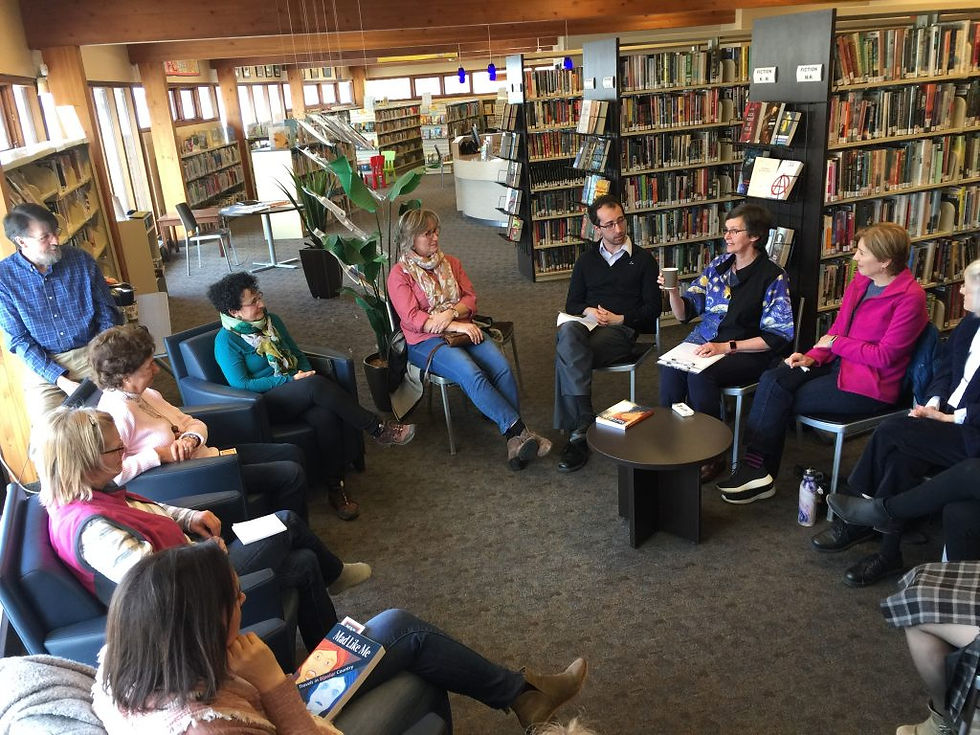World Bipolar Day: Sharing stories; shattering stigmas
- Merryl Hammond
- Apr 1, 2019
- 2 min read
Updated: Sep 22, 2020

At the local World Bipolar Day event, I toasted participants and urged
them to take active steps to protect their own mental health.
Celebrating World Bipolar Day
Last week, I facilitated an event to celebrate World Bipolar Day in Baie-D’Urfé. A group of people – some of us affected by bipolar in one way or another, and some who simply wanted to learn more – gathered at the library to share personal experiences about the impact of bipolar on our lives.
The power of sharing stories
What an eye-opening afternoon it was. As one participant emailed afterwards: “I attended because I read your Mad Like Me book and wanted to support you, and I found myself moved by the stories of those who have experienced, directly or indirectly, the suffering that a mental illness can inflict on a person and on his/her family. How genuine and naturally eloquent these people were while sharing painful and private events. It is true that ‘telling is healing,’ but then listening is also enriching and humbling.”
Every time someone affected by a mental illness speaks up, the massive stigma surrounding it is at least somewhat eroded. We have a long way to go, but it feels great to be part of this movement to change perceptions.

At the event, I described how I experienced bipolar depressive
and manic episodes, and shared the mantra: “It could be me!” –
emphasizing that mental illness could affect anyone at any time.
History of World Bipolar Day
World Bipolar Day (WBD) was started in 2014, co-sponsored by the International Society for Bipolar Disorders and several other international organizations. They chose March 30 because that was Vincent van Gogh’s birthday, and he was posthumously diagnosed as probably having suffered from bipolar disorder. The vision of WBD is to bring worldwide awareness to bipolar disorders. It’s a privilege to be part of a global effort to educate about bipolar, and to reduce the stigma associated with it.
Won’t you join this movement?
Cheers,






Comments